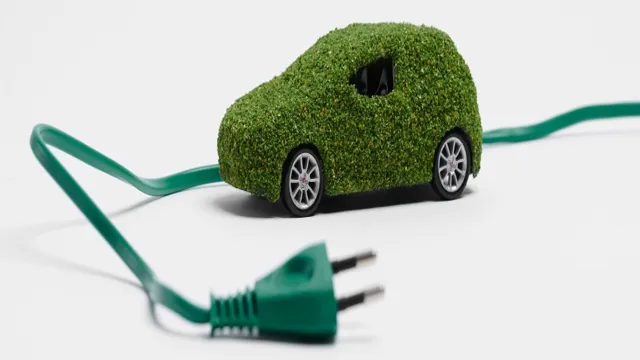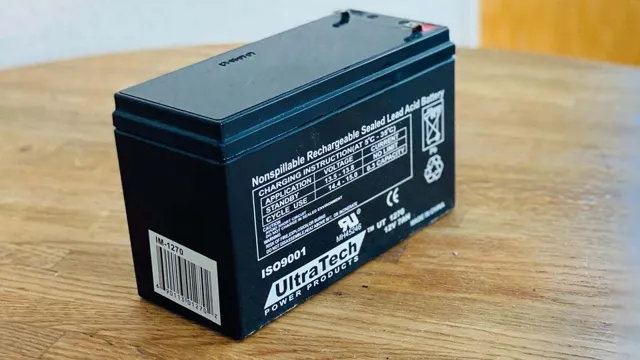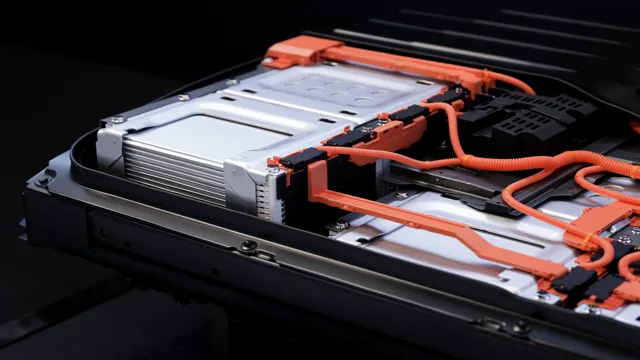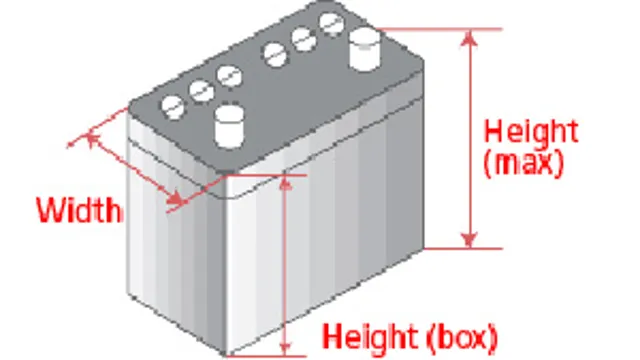Exploring the Green Credentials of Electric Car Batteries: Are They Truly Sustainable?
Electric cars have become increasingly popular in recent years, with more and more drivers opting for this eco-friendly alternative to traditional gas-powered vehicles. However, as the electric car industry continues to grow, the question of just how green electric car batteries really are has come to the forefront of people’s minds. After all, while electric cars produce zero emissions while driving, their batteries rely on a variety of materials and manufacturing processes that may not necessarily be environmentally friendly.
So, are electric car batteries truly a green alternative? Let’s take a closer look at the environmental impact of electric car batteries and find out.
What are Electric Car Batteries?
Are electric car batteries green? The answer is not a straightforward yes or no. While electric car batteries produce no emissions or pollutants while driving, the production process of the batteries does have a carbon footprint. Additionally, the materials used to make the batteries, such as cobalt and lithium, are often mined in environmentally sensitive areas, causing damage to local ecosystems.
However, there is progress being made towards more sustainable and eco-friendly battery production, such as using recycled materials and alternative, less harmful metals. So, while electric car batteries may not be entirely green at the moment, efforts are being made to make them more sustainable and environmentally friendly in the long run.
Composition of Electric Car Batteries
Electric car batteries are the power source for electric vehicles. They come in different types, but most commonly used are lithium-ion batteries. These batteries are made up of individual cells, which are arranged into modules.
Each cell contains a cathode (positive electrode), an anode (negative electrode), and an electrolyte material that allows ions to move between the electrodes. The cathode and anode are made up of various metals, such as cobalt, nickel, manganese, and lithium. The specific composition of the battery depends on the manufacturer, but these metals are chosen for their ability to store and release energy efficiently.
Overall, electric car batteries are complex systems designed to deliver high performance and long life, while also being safe and environmentally friendly. With the growing popularity of electric vehicles, the development of more efficient and affordable batteries is a crucial area of research and innovation.

Comparison to Traditional Car Batteries
Electric car batteries differ significantly from traditional car batteries. Traditional batteries are lead-acid, while electric car batteries use lithium-ion technology. There are many notable differences between the two types of batteries.
One of the most significant differences is the energy storage capacity. Electric car batteries are much more efficient than traditional batteries, storing more energy and lasting longer. Additionally, electric car batteries can be recharged quickly, allowing drivers to get back on the road faster.
Traditional batteries, on the other hand, take much longer to recharge and can lose their charge quickly, which can be frustrating for drivers. Furthermore, electric car batteries are much better for the environment as they produce zero emissions, a significant benefit for the planet. In summary, while traditional car batteries have served their purpose for many years, electric car batteries offer many advantages that make them a superior option for all drivers concerned about energy efficiency and sustainability.
Environmental Impact of Electric Car Batteries
Many people believe that electric car batteries are a green technology, but the truth is that they do have an environmental impact. First of all, the production of electric car batteries involves the extraction of many raw materials, such as lithium, cobalt, and nickel, which may require a lot of energy and water. Additionally, electric car batteries have a limited lifespan and eventually lose their ability to hold a charge, which means that they must be replaced every few years.
The disposal of these batteries can be problematic because they contain harmful chemicals that can seep into the environment. However, it’s important to remember that electric cars have a much smaller carbon footprint than traditional gasoline-powered cars, and the overall environmental impact of electric car batteries is still much lower than that of conventional cars.
Manufacturing Process
Electric car batteries have become a popular alternative for environmentally conscious consumers looking to reduce their carbon footprint. However, the manufacturing process of these batteries still has a significant impact on the environment. The production of electric car batteries is highly energy-intensive and requires the extraction of rare earth minerals, which can lead to deforestation, water pollution, and habitat destruction.
Additionally, the disposal of these batteries presents a potential risk to the environment as they can release toxic chemicals into the soil and water if not handled properly. Despite these concerns, efforts are being made to improve the manufacturing process and find more sustainable materials. As consumers, we can also take responsibility by properly disposing of our electric car batteries and considering the product’s environmental impact before making a purchase.
Lifecycle Analysis
Electric car batteries have the potential to significantly reduce our carbon footprint, but it’s important to consider the entire lifecycle of these batteries when assessing their environmental impact. The manufacturing process for batteries involves the extraction of raw materials, which can contribute to deforestation and habitat loss, as well as the energy-intensive process of refining and processing these materials into usable components. Additionally, the disposal of batteries at the end of their lifespan can lead to harmful chemicals leaching into the environment.
One way to mitigate the environmental impact of electric car batteries is through recycling. By reclaiming and reusing the materials in these batteries, we can reduce the need for additional mining and refinement of new materials. However, the recycling process can also be energy-intensive, so it’s important to consider the balance between environmental benefits and energy costs.
Ultimately, the environmental impact of electric car batteries is a complex issue that requires a holistic approach to address. While electric cars play an important role in reducing greenhouse gas emissions from transportation, it’s important to consider the production and disposal processes of their batteries to truly assess their impact on the environment.
Disposal and Recycling
As electric cars continue to grow in popularity, one concern that has been raised is the environmental impact of their batteries. While electric car batteries offer several benefits, including reduced emissions and improved fuel efficiency, they also contain rare and expensive metals, such as cobalt and lithium, which can pose challenges when it comes to disposal and recycling. Improper battery disposal can result in harmful chemicals leaking into the environment, while recycling can be difficult due to the complexity of the materials.
However, efforts are underway to improve battery recycling processes and make electric car batteries more sustainable. Companies are exploring ways to reuse battery components and extract valuable metals in order to reduce waste, while governments and environmental organizations are working to establish regulations and standards for responsible battery disposal. Ultimately, by taking steps to address the environmental impact of electric car batteries, we can ensure that we continue to reap the benefits of electric car technology without sacrificing the health of our planet.
Conclusion: The Verdict on Greenness
In conclusion, the answer to the question of whether electric car batteries are green is not a straightforward one. While they do produce zero emissions while on the road, the production and disposal processes of these batteries can have negative environmental effects. However, as technology continues to improve and more sustainable methods for production and disposal are developed, electric car batteries have the potential to be truly green.
So, the next time someone asks you if electric car batteries are green, just say that they’re not quite there yet, but they’re making strides towards a greener future!”
Electric Car Batteries vs Gasoline Engines
When it comes to the environmental impact of electric car batteries, there are some things you should consider. While electric cars emit less carbon dioxide than traditional gasoline engines, their batteries require rare earth minerals that are often mined using environmentally damaging processes. The production of electric car batteries also requires a significant amount of energy, which can have a major carbon footprint.
Despite these concerns, some experts argue that the overall environmental impact of electric cars is still less than that of gasoline cars due to their efficiency and the potential for renewable energy sources to power them. However, as with any new technology, it’s important to continue researching and developing more sustainable practices to ensure that the environment is being protected, while also reducing our dependence on fossil fuels.
Potential for Future Improvements
As electric vehicles become more popular, there has been increasing concern about the environmental impact of electric car batteries. While electric car batteries do have a larger upfront carbon footprint than traditional car batteries, they have the potential to significantly reduce overall emissions in the long-term. Additionally, researchers are constantly searching for ways to improve the sustainability of electric car batteries.
For example, recycling programs are being established to recover and reuse valuable materials from old batteries. Meanwhile, some scientists are developing new battery technologies that use more environmentally friendly materials. As these advancements continue, electric car batteries have the potential to become even more sustainable and reduce the overall environmental impact of transportation.
Final Thoughts
So, are electric car batteries actually green? It’s a question that’s been debated among many in the eco-friendly community. While it’s true that electric cars produce far less emissions than their gas-guzzling counterparts, the batteries that power these vehicles are not without their own environmental impact. The production of the batteries involves the extraction of raw materials, such as lithium and cobalt, from the earth, which can have negative effects on the surrounding environment.
Additionally, the disposal of these batteries can lead to further environmental damage if not handled properly. However, advancements in battery technology and recycling processes are constantly being made, and the overall impact of electric car batteries on the environment is still much less than that of traditional gasoline engines. So, while electric car batteries may not be completely “green,” they are certainly a step in the right direction for a more sustainable future.
FAQs
How are electric car batteries more environmentally friendly than traditional car batteries?
Electric car batteries are more environmentally friendly because they do not emit greenhouse gases and pollutants during usage, and they can often be recycled.
Are the materials used in electric car batteries sustainable?
The materials used in electric car batteries, such as lithium and cobalt, can be mined in a sustainable manner. However, there are concerns about the ethics of mining these materials.
How long do electric car batteries typically last?
The lifespan of an electric car battery can vary, but most batteries are designed to last for several years. In general, the battery’s lifespan depends on how frequently it is charged and discharged, as well as how well it is maintained.
Can electric car batteries be reused or recycled?
Yes, many electric car batteries can be reused or recycled. Some batteries can be repurposed for energy storage, while others can be broken down and the materials extracted for reuse. This makes electric car batteries a more environmentally sustainable option than traditional car batteries.



